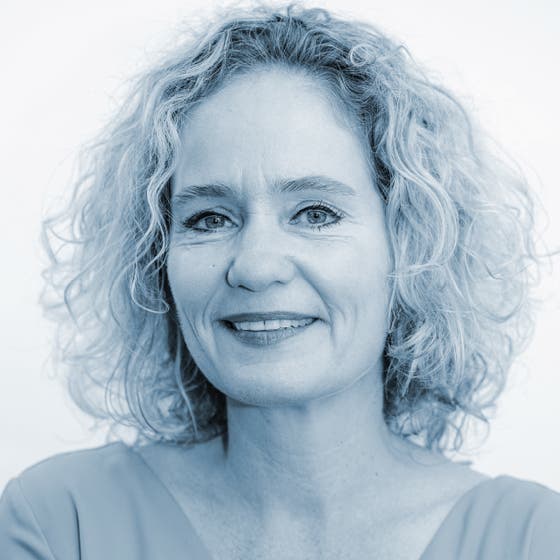Equal access to genetic testing
Equal access to genetic testing

Women with a lower level of education and with a migrant background are less likely to receive a referral for genetic testing. Researcher Jeanine van der Giessen wants to make genetic testing accessible to all women with breast cancer. That is why she developed and tested a training program on health literacy for oncological surgeons and nursing specialists. Tuesday Jeanine obtained her PhD on this research.
A proportion of women with breast cancer receive a referral for genetic testing. The healthcare professionals who refer patients, such as oncological surgeons and specialist nurses, often find it difficult to explain genetic testing in a comprehensible manner. As a result, women with a lower level of education and with an immigrant background are less likely to see a clinical geneticist. This had already been shown in an earlier study by the Genetics Department of the UMC Utrecht and was confirmed in Jeanine’s doctoral research.
A patient’s health literacy plays a role in this. Health literacy is the ability to obtain, understand and assess information about health when making decisions about one’s own health. It is a challenge for healthcare professionals to recognize low health literacy and to adapt communication in the consultation room accordingly. And if genetic testing is not adequately discussed with these women, they will not receive the proper care and treatment. This has consequences not only for the patient, but also for her family.
Training program for healthcare professionals on health literacy
To make genetic testing accessible to all women with breast cancer, Jeanine developed a training program: Erfo4all. From 3 regions in the Netherlands, 59 oncological surgeons and specialist nurses from 16 different Dutch hospitals participated in the training. This consisted of an online module and a group training session in the participants’ own hospital.
The healthcare professionals learned how to recognize patients with low health literacy. They were also trained in communication techniques so that they could clearly convey information about genetic research to this group. The use of plain language and the teach-back method were central to this. In the teach-back method, the healthcare professional asks the patient to repeat the information in their own words. The healthcare professionals also practiced cases from their own practice with a training actress.
“The use of plain language and the teach-back method provide opportunities to improve access to genetic testing.”
Plain-language guide for genetic testing
For the use of plain language, Jeanine developed the ‘Breast Cancer Genetic Testing’ plain-language guide, guide together with breast cancer patients and language ambassadors from the Stichting Lezen & Schrijven (Reading & Writing Foundation). This plain-language guide explains jargon about genetic research in a comprehensible way. The Dutch Language Union nominated the discussion guide for the ZorgVoorZorg prize 2021.
The results of Jeanine’s research
Physicians and nursing specialists who participated in Erfo4all completed a questionnaire before the training and again six months later. This allowed Jeanine to measure the effect the training had on knowledge and awareness of low health literacy and how the caregiver adapted their communication accordingly. The healthcare professionals reported increased awareness of low health literacy. The healthcare professionals also started to apply the acquired skills in their own consultation rooms.
In addition, clinical geneticists and genetic counsellors at the departments of Genetics in Utrecht, Amsterdam and Rotterdam recorded the background data of all referred patients for 18 months. This allowed them to determine if there was a difference in referrals after following the training program. Jeanine unfortunately did not see the hoped-for effect. However, she did find that the average age of referred patients at high risk of hereditary predisposition was lower after the training program than before. This is important, because the risk of hereditary predisposition to breast cancer is higher in patients who are younger in average.
Summing up, Jeanine says: “Effectively discussing breast cancer genetic testing is important. The use of plain language and the teach-back method promote referral to the clinical geneticist and provides opportunities to improve access to genetic testing.”
The next steps of this research
The Genetics Department of the UMC Utrecht is now investigating how Erfo4all can be made available to all oncological surgeons and specialist nurses. In addition, it is important that medical training courses consistently pay more attention to health literacy and its impact on communication in healthcare.
Jeanine received her PhD from Prof. Margreet Ausems. Her chair focuses on research into improving the accessibility of genetic research. Jeanine’s research is a collaboration between the UMC Utrecht, NIVEL, the Amsterdam UMC and Pharos. The research was funded by Pink Ribbon/Dutch Cancer Society KWF with support from the Vriendenloterij.

